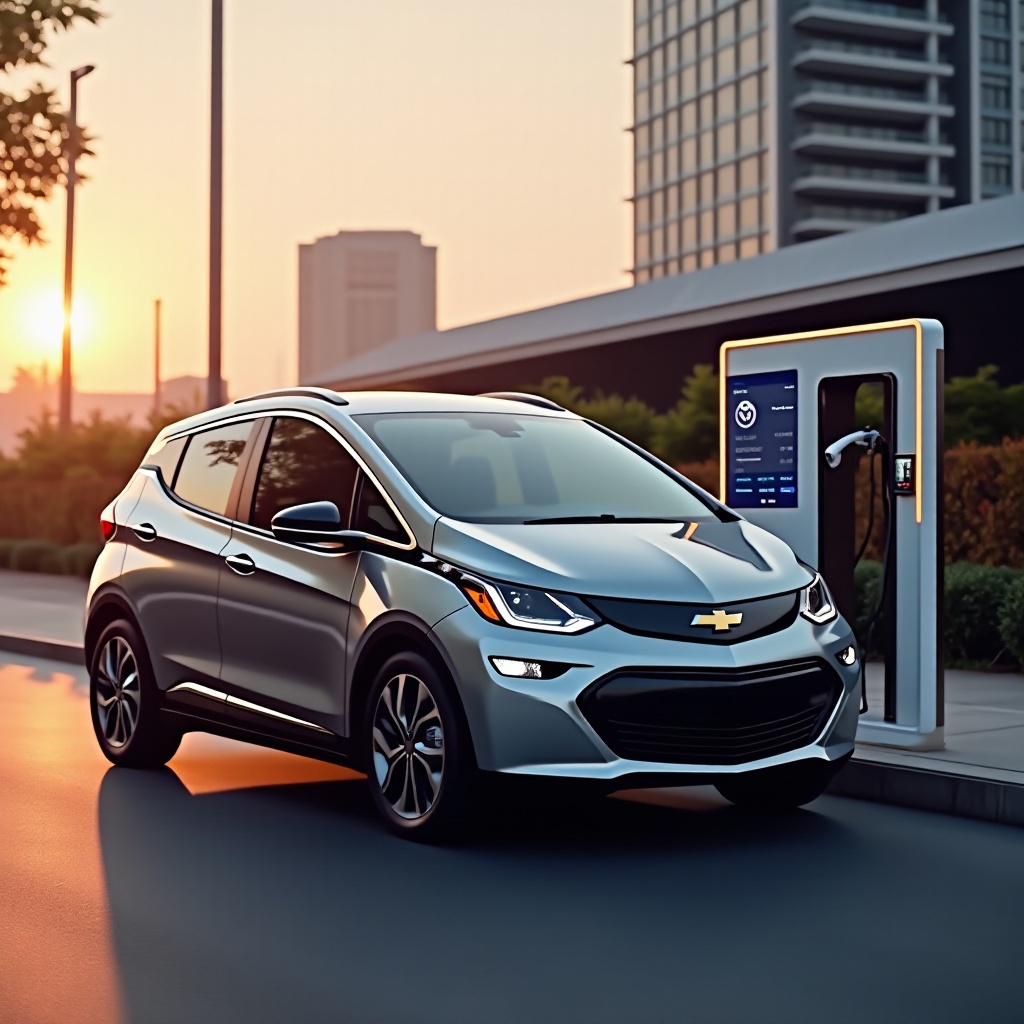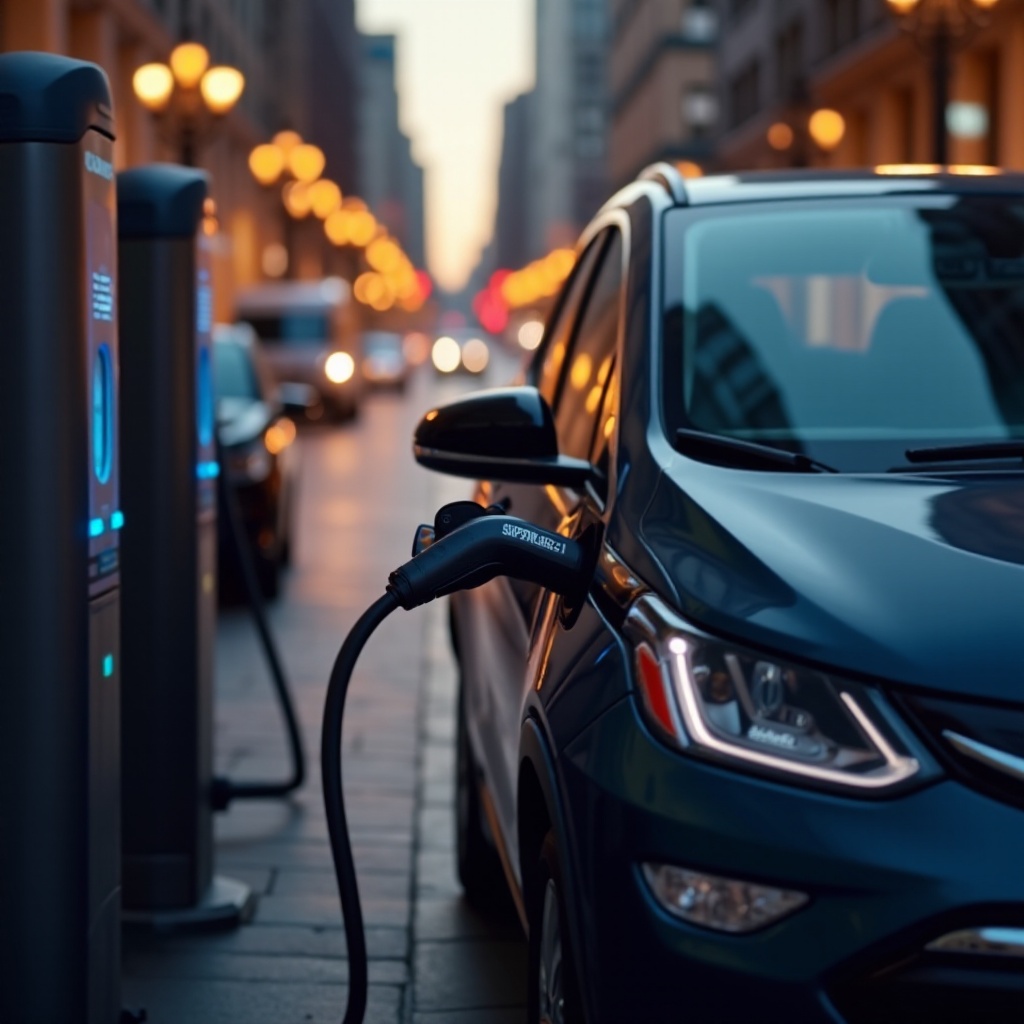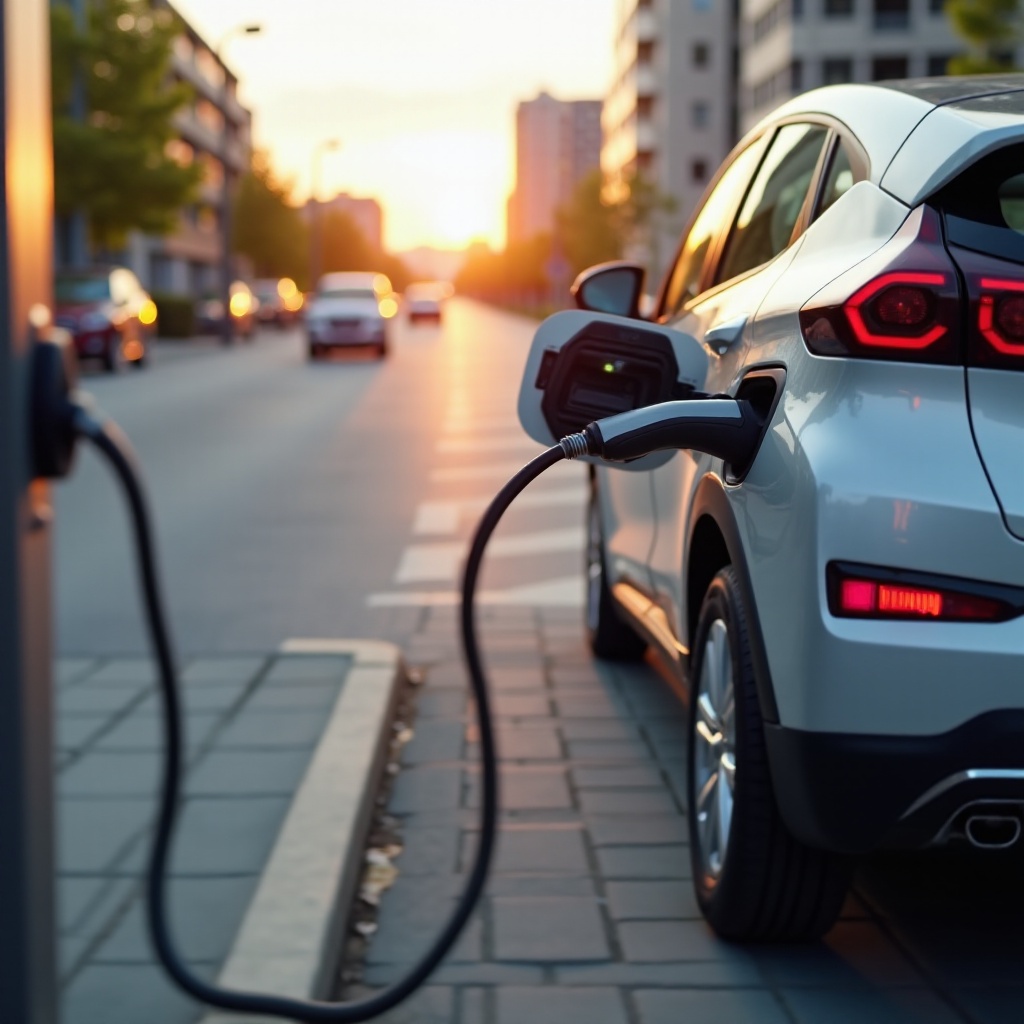Introduction
The Chevrolet Bolt EUV stands out as a reliable electric vehicle (EV) offering impressive performance and convenience. As you transition to eco-friendly driving, understanding the specifics of charging times becomes crucial. This comprehensive guide covers the ins and outs of the Chevrolet Bolt EUV charge time to ensure you’re well-prepared and informed for an optimized driving experience.

Understanding Chevrolet Bolt EUV Battery and Charging Technology
The Chevrolet Bolt EUV comes equipped with a high-capacity lithium-ion battery that plays a pivotal role in its performance and charge time. The 65 kWh battery offers a comfortable range on a single charge, but, like all EVs, its charge time depends heavily on the available charging infrastructure.
Chevrolet designs the Bolt EUV with cutting-edge charging technologies to ensure efficiency and convenience. The vehicle supports various charging levels, providing flexibility whether you’re at home, at work, or on the road. Let’s delve into the key factors affecting charge time to give you a comprehensive understanding of what to expect.
Key Factors Affecting Charge Time
Several factors influence the charging time for the Chevrolet Bolt EUV, making it essential to understand these variables for effective planning.
Battery Specifications
The Bolt EUV features a 65 kWh battery, which directly impacts charging times. Larger batteries offer more range but require more energy and time to charge fully.
Types of Charging Stations (Level 1, Level 2, and DC Fast Charging)
- Level 1 Charging: This is the slowest charging method, using a standard 120-volt home outlet. It provides about 4-5 miles of range per hour.
- Level 2 Charging: Utilizing a 240-volt outlet, often available in homes and public stations, this method significantly reduces charging time. It offers approximately 25 miles of range per hour.
- DC Fast Charging: The fastest option, found in public charging infrastructures. It can charge from 0 to 80% in about 30 minutes, adding about 100 miles of range.
Environmental Factors
Temperature and climate can affect charging efficiency. Extreme cold or heat can increase charge times and reduce battery performance. Ensuring your car and charging station are in an optimal environment can help maintain efficient charging times.
Detailed Charging Time Estimates
Understanding different charging scenarios can help you better plan and optimize your charging strategy.
Level 1 Charging: Home Outlets
Using a standard home outlet provides a modest recharging option. Charging your Chevrolet Bolt EUV using Level 1 charging will take approximately 50 hours to go from empty to full. This method is best suited for overnight charging or when daily driving distances are relatively short.
Level 2 Charging: Residential and Public Chargers
Level 2 chargers, found in many homes, workplaces, and public locations, offer a substantial improvement over Level 1. Charging with Level 2 infrastructure typically takes about 9.5 hours for a full charge. This method is ideal for regular daily use, as it can easily recharge the battery overnight or during a workday.
DC Fast Charging: Public Infrastructure
For those who need rapid charging, DC Fast Charging is the go-to option. This method can bring the Bolt EUV’s battery from 0 to 80% in just around 30 minutes. It’s perfect for long trips or when you need a quick recharge during busy days.
Optimizing Your Chevrolet Bolt EUV Charging Experience
To maximize efficiency and battery health, consider these best practices and tools.
Home Charging Best Practices
- Install a Level 2 Charger at Home: This significantly reduces your charging time and makes overnight charging convenient.
- Charge During Off-Peak Hours: Many utility companies offer lower rates during off-peak times. Take advantage of this to save on energy costs.
Using Public Charging Networks Effectively
- Plan Your Routes: Use apps and mapping tools to locate charging stations along your route.
- Utilize Memberships: Some networks offer memberships that provide discounted rates or access to special chargers.
Mobile Apps and Charging Networks
Several apps can enhance your charging experience:
1. PlugShare: Provides comprehensive maps of charging stations.
2. ChargePoint: A large network with an easy-to-use app for finding and paying at stations.
3. EVgo: Specializes in fast charging with a growing network of chargers.

Real-World Charging Scenarios and Practical Tips
Real-world application of charging practices can greatly enhance your overall EV experience.
Daily Commutes
For average daily commutes, Level 2 home charging should keep your Bolt EUV adequately charged. By plugging in each night, you can wake up to a fully charged vehicle every morning.
Long Trips
When planning longer journeys, use DC Fast Chargers for quick top-ups. Mapping out your route with charging stops ensures you don’t experience range anxiety.
Battery Health Maintenance
- Avoid Extreme Temperatures: Parking in shaded or temperature-controlled areas helps maintain battery health.
- Regularly Monitor Battery Health: Use vehicle diagnostics to keep tabs on battery performance and avoid overcharging.

Conclusion
Understanding the Chevrolet Bolt EUV charge time is integral for any current or prospective owner. By leveraging the information and tips provided here, you can ensure a seamless, efficient charging experience that maximizes both convenience and battery longevity.
Frequently Asked Questions
How long does it take to charge a Chevrolet Bolt EUV at home?
Using a Level 1 home outlet, it takes around 50 hours for a full charge. With a Level 2 charger, it reduces to about 9.5 hours.
What is the fastest way to charge a Chevrolet Bolt EUV?
DC Fast Charging offers the fastest method, charging from 0 to 80% in approximately 30 minutes.
How can I extend the battery life of my Chevrolet Bolt EUV?
Avoid extreme temperatures, charge during off-peak hours, use Level 2 charging, and regularly monitor battery health to optimize longevity.
